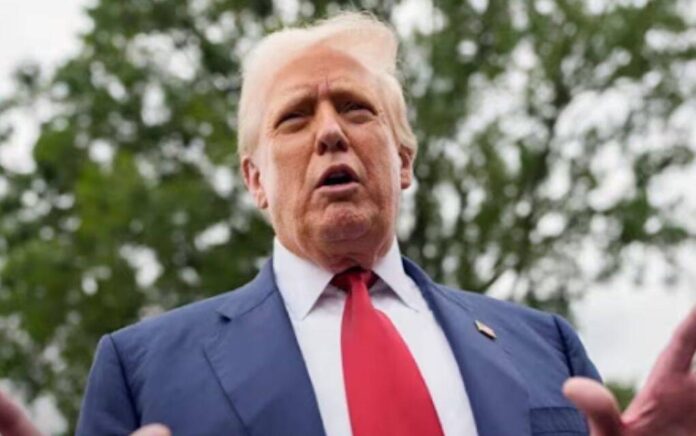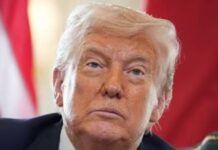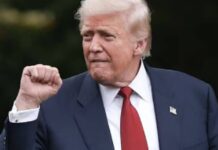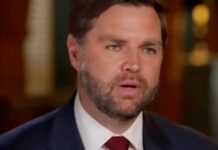
The Trump admin is working around the clock to expose the truth. But the courts are working against him.
And now a federal judge has released a 31-page order that handcuffs the Trump DOJ.
A U.S. district judge has rejected the Department of Justice’s attempt to disclose grand jury records connected to the s*x trafficking investigations of the deceased financier Jeffrey Epstein and his convicted associate Ghislaine Maxwell. In a comprehensive 31-page ruling, Judge Paul Engelmayer dismissed the proposal, concluding that the files lack “significant, undisclosed information about [their] crimes, or the investigation into them.”
The judge highlighted only two key elements of the grand jury proceedings in his decision. “First, the grand juries in this case were not used for investigative purposes,” he wrote. “They did not hear testimony from any firsthand witness to any event at issue. They did not hear testimony from any victim, eyewitness, suspect, or even a records custodian. The grand juries met instead for the quotidian purpose of returning an indictment.”
Testimony came exclusively from law enforcement officials, with each grand jury session spanning just a single day, the ruling stated. “Second, the evidence put before the Maxwell grand juries is today, with only very minor exceptions, a matter of public record,” Engelmayer continued. “The Government admitted as much.”
Prosecutors also aimed to reveal exhibits presented to the grand jurors, which were thought to include more individuals than those already linked publicly through legal actions. Engelmayer, however, blocked the release of these exhibits as well.
“A member of the public familiar with the Maxwell trial record who reviewed the grand jury materials that the Government proposes to unseal would thus learn next to nothing new,” he wrote. “The materials do not identify any person other than Epstein and Maxwell as having had s*xual contact with a minor. They do not discuss or identify any client of Epstein’s or Maxwell’s. They do not reveal any heretofore unknown means or methods of Epstein’s or Maxwell’s crimes.”
No additional details emerged about the sources of Epstein’s fortune, the events surrounding his demise, or the direction of the federal inquiry, according to the judge. Court authorization is required to publicize grand jury exhibits, yet prosecutors pushed for disclosure given the nationwide scrutiny. Immediate clarity was lacking on potential ties between any mentioned figures and Epstein or Maxwell.
The government sought a deadline of Thursday, Aug. 14, to alert those whose identities could surface. Maxwell remains incarcerated with a 20-year term after her 2021 guilty verdict for assisting Epstein in the exploitation of underage females. She continues to contest her sentence and has signaled openness in recent weeks to discussions with lawmakers and federal authorities.
During Donald Trump’s first term as president from 2017 to 2021, his administration took steps to pursue accountability in the Jeffrey Epstein matter, beginning with the high-profile arrest of the financier in July 2019 by the Southern District of New York. This action, overseen by then-Attorney General William Barr, marked a renewed federal focus on Epstein’s alleged s*x trafficking network after earlier leniency in a 2008 Florida plea deal. The Department of Justice charged Epstein with s*x trafficking and conspiracy, aiming to expose his operations involving underage girls.
Following Epstein’s death in custody that August, ruled a su*cide by medical examiners, the Trump administration launched multiple reviews to address public skepticism. Barr personally viewed jail footage and ordered an inspector general probe into the circumstances, emphasizing a commitment to full disclosure amid conspiracy claims. These efforts included FBI investigations that ultimately affirmed the su*cide finding, with no evidence of foul play.
In his 2024 reelection campaign, Trump vowed to declassify and release Epstein-related documents if returned to office, positioning himself as a champion against elite cover-ups. He highlighted past associations but distanced himself from wrongdoing, promising Americans access to files that could reveal powerful figures’ involvement. This pledge resonated with supporters demanding answers about Epstein’s network.
Upon resuming the presidency in 2025, the administration acted on these assurances by directing the Justice Department to conduct an exhaustive internal review of Epstein holdings. In July, officials released a FBI memo detailing searches of databases, hard drives, and physical evidence, uncovering vast digital materials but no formal “client list” or blackmail evidence. Enhanced video footage from Epstein’s cell was made public to support the su*cide conclusion.
Attorney General Pam Bondi, appointed by Trump, spearheaded further moves, including a push to unseal grand jury transcripts from Epstein’s and Maxwell’s cases. This July motion cited public interest and aimed to notify affected parties before any disclosures. It followed reports naming Trump in certain files, which he denied, and sought to counter narratives of obstruction.
The administration also facilitated an interview with Maxwell by the Justice Department, as she expressed willingness to cooperate amid her appeal. This step was framed as advancing the probe into Epstein’s circle, though details remained limited due to ongoing legal sensitivities. Despite these initiatives, federal judges have rebuffed some unsealing requests, including the recent denial of Maxwell’s grand jury materials for lacking novel insights.



















